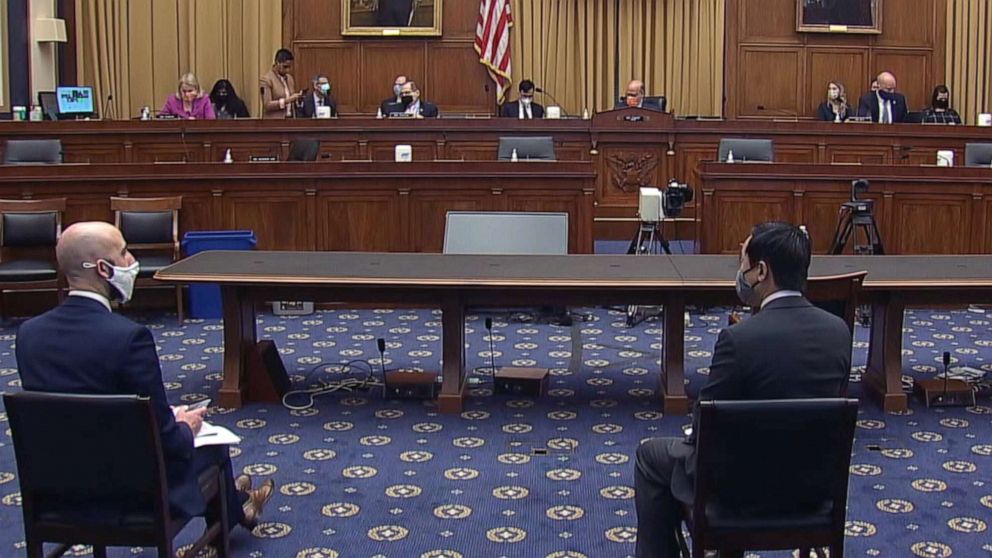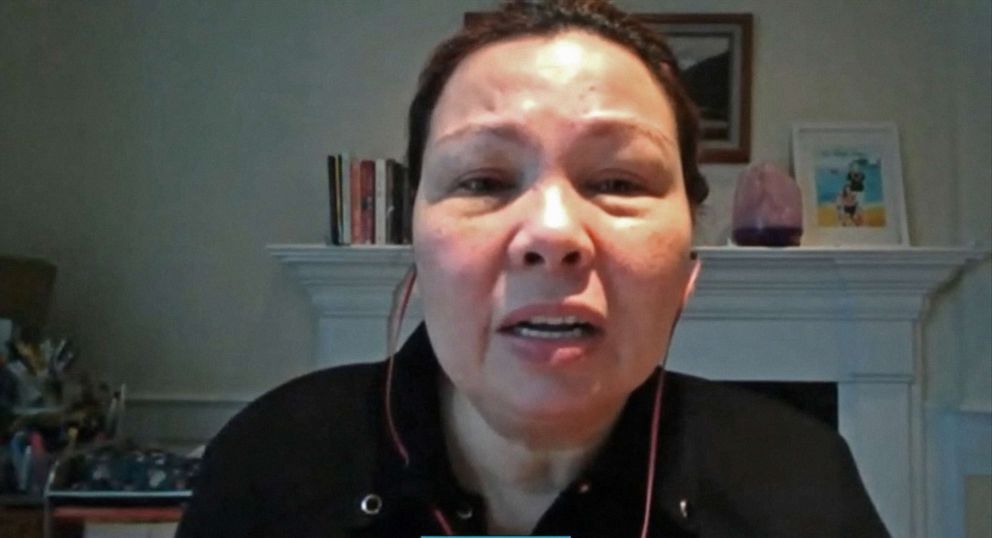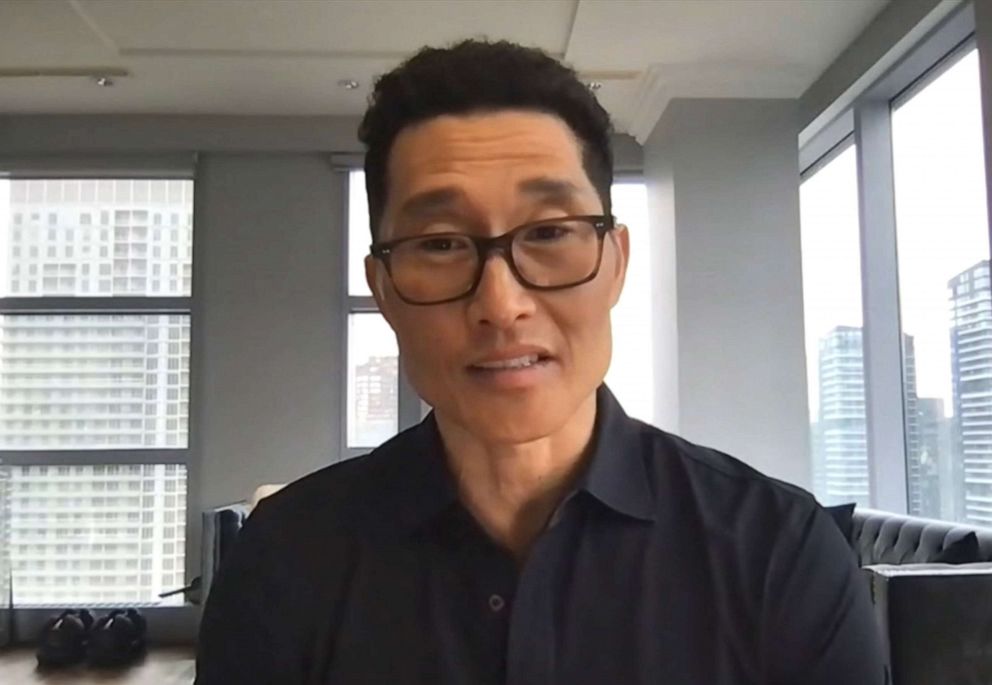Anti-Asian hate hearing gets emotional: 'We will not let you take our voice away'
The hearing came after several Asian women were killed in Atlanta.
Prominent Asian American lawmakers, scholars and advocates, including actor and producer Daniel Dae Kim, testified Thursday on the rise in hate crimes and discrimination against Asian Americans before the House Judiciary Subcommittee on the Constitution, Civil Rights and Civil Liberties.

The hearing followed a string of hate crimes against Asian Americans, as well as three shootings at Atlanta-area spas on Tuesday in which eight people were killed. Six of the victims were Asian women.
The suspect, Robert Aaron Long, told investigators that the shootings were not racially motivated and instead blamed his "addiction to sex," according to a statement from the Cherokee County Sheriff's Office. Long was charged with eight counts of murder on Wednesday.
"This is one of the more violent tragedies in a string of about 3,800 hate incidents and crimes against Asian Americans -- 68% of them women," said Rep. Judy Chu, D-Calif., at a press conference Wednesday. "It's clear that the individuals were targeted because they are amongst the most vulnerable in our country: immigrant Asian women."
Subcommittee Chair Steve Cohen, D-Tenn., began the hearing Thursday with a moment of silence for the people who were killed in Atlanta. He then began his opening statement by saying the shooting on Tuesday felt to many "like the inevitable culmination of a year in which there were nearly 3,800 reported incidents of anti-Asian hate."
"I want to make clear that all Asian Americans who are understandably feeling hurt and afraid right now and wondering whether anyone else in America cares that Congress sees you, we stand with you," he added. "We're gonna do everything in our power to protect you."
Chu, chair of the Congressional Asian Pacific American Caucus and the first Chinese American woman to serve in Congress, also talked about the Atlanta shootings at Thursday's hearing.
“It is with a heavy heart that we are here today, still shocked and heartbroken about the murder of eight in Georgia, including six Asian American women, by a gunman who targeted three Asian businesses. The first one being Young's Asian Massage, then driving 27 miles to two other Asian spas,” Chu said.
“His targets were no accident," she added. "And what we know is that this day was coming. And because of crimes like this, I, as chair of the Congressional Asian Pacific American Caucus, or CAPAC, urged the committee to undertake this hearing because the Asian American community has reached a crisis point that cannot be ignored."
During her testimony, Chu repeated her call for a national day to speak out against Asian hate on March 26. "It is time that we continue to push back against xenophobia every time it rears its ugly head," she said. "Asian Americans must not be used as scapegoats in times of crisis. Lives are at stake."
Illinois Sen. Tammy Duckworth, another Democratic member of CAPAC, also testified.
"There is nothing, nothing we can say today that will piece back together the shattered lives of the victims' loved ones," Duckworth said during the hearing. "There is nothing we can do that will give them the solace they deserve. Nothing we can provide that will even begin to make sense of this senseless tragedy. But what we can say, and should say clearly, unambiguously, is blaming the AAPI community for a public health crisis is racist and wrong."

Duckworth told ABC News Wednesday that discrimination and violence against Asian Americans are ongoing issues that need people's attention.
"Most people, I don't think, think of Asians as being the subject of racist attacks, but we have been," she said. "And we're the one community that's often always seen as the other. I -- to this day -- still get asked, 'So where are you from really?'"
Rep. Grace Meng, D-N.Y., another CAPAC member, also gave her testimony on Thursday.
"For over a year, Asian Americans have been fighting an additional virus of hate and bigotry," she said. "Anti-Asian rhetoric like "China virus," "Kung flu," misinformation, racism have left Asian Americans traumatized and fearful for their lives."
In an emotional moment during her testimony, Meng pushed back against comments that Republican Texas Rep. Chip Roy made during his opening statement. Roy said that he believes victims of race-based violence deserve justice, but then claimed the hearing was an effort to police rhetoric and criticized China for its handling of the coronavirus pandemic.
"I want to go back to something that Mr. Roy said earlier," she said. "Your president and your party and your colleagues can talk about issues with any other country that you want. But you don't have to do it by putting a bull's eye on the back of Asian Americans across this country. On our grandparents, on our kids. This hearing was to address the hurt and pain of our community. To find solutions. And we will not let you take our voice away from us."

On Thursday, actor Daniel Dae Kim discussed the increase in violence against Asian Americans. He talked about an encounter he had with a pollster who said Asian Americans are “statistically insignificant” in polling models.
“Statistically insignificant. Now all of you listening to me here, by virtue of your own elections, are more familiar with the intricacies of polling than I am, so undoubtedly, you already know what this means – statistically insignificant literally means that we don’t matter,” he testified.
Kim, who produces and stars in the TV series "The Good Doctor," has been vocal in recent months about the violence against the Asian American community. Kim recently partnered with fellow actor Daniel Wu to offer a $25,000 reward for information leading to the arrest and conviction in the attack of a 91-year-old man in Oakland.
"I got very angry because this is now a year of these kinds of things going on," Kim told ABC News' Juju Chang in early March. "They're attacking our most-vulnerable population and no one in the mainstream media, outside of the Asian American echo chamber, is picking up this story. ... People are saying for the first time, 'I had no idea this was going on,' and that means to me that we're making progress in shining a light on the problem."
Hate crimes and discrimination against Asians have surged due to the coronavirus pandemic and its suspected origins in Wuhan, China. Critics, including Chu, have said that former President Donald Trump's rhetoric around the pandemic and his use of terms like "China virus" contributed to the surge.
From March 2020 to the end of February 2021, more than 3,700 incidents of discrimination against Asian Americans have been reported to the advocacy group Stop AAPI Hate, according to a report by the organization.
Verbal harassment accounts for 68.1% of incidents, according to the report. Shunning, or the deliberate avoidance of Asian Americans, accounts for 20.5% of incidents and physical assault makes up 11.1%. Just over 35% of incidents occurred at businesses.
At Thursday's hearing, Manjusha Kulkarni, the executive director of the Asian Pacific Policy and Planning Council and the co-founder of Stop AAPI Hate, shared some of the hateful language that Asian Americans have reported to the organization.
"'Go back to Wuhan and take the virus with you.' 'You are the reason for the coronavirus.' 'Damn, another Asian riding with me. Hope you don't have COVID.' These are but a few examples of what Asian Americans have experienced over the course of the last year," she said in her testimony. "Alongside with refusal of service, workplace discrimination, and sadly, now, homicide."
"For that reason on March 19, 2020, my organization, Asian Pacific Policy and Planning Council, in conjunction with Chinese for affirmative action in San Francisco university state launched Stop AAPI hate," Kulkarni added. "We received almost 3,800 self-reported incidents of bias and discrimination from all 50 states and the District of Columbia, making Stop AAPI Hate the leading aggregator of hate."
Kulkarni told ABC News before the hearing that she hoped it would shed light on the complexities of the issue. To address the rise in discrimination and violence against Asian Americans, she said lawmakers should publicly condemn it, create public information campaigns about racism and provide resources to victims of hate-related incidents.
"We really need a comprehensive approach moving forward to address what's happening and make sure it doesn't happen again," Kulkarni said.
ABC News' Mariam Khan, Allison Pecorin and Benjamin Siegel contributed to this report.




